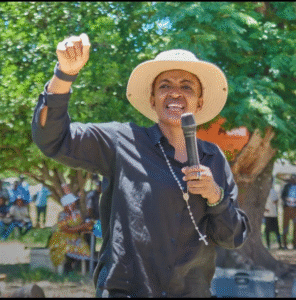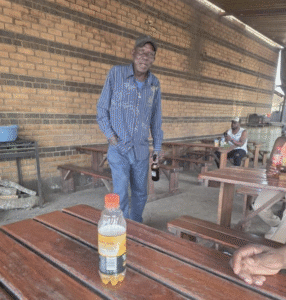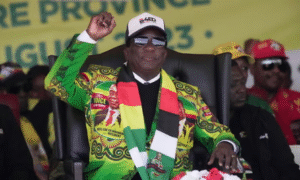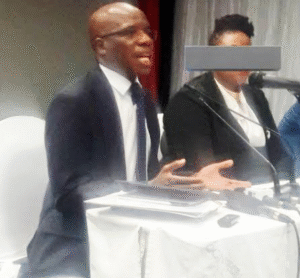UNBOWED IN THE FACE OF CONVICTION: JOB SIKHALA’S DEFIANT STAND AGAINST GOVERNMENT REPRESSION

In a remarkable display of defiance and resilience, Job Sikhala, a prominent figure in Zimbabwean politics, has been convicted of inciting violence. This conviction marks a significant milestone in the ongoing struggle against government repression in Zimbabwe. Despite the gravity of the situation, Sikhala, who was presented in court bound in leg irons, remained undeterred. His words, “Let them do what they want. I don’t care, don’t worry,” resonate as a powerful testament to his unyielding spirit.
Sikhala, widely regarded as the face of resistance against the Zimbabwean government’s oppressive tactics, has long been a thorn in the side of the ruling authorities. His steadfast commitment to speaking out against injustice and advocating for democratic principles has earned him both admiration and animosity. His conviction is seen by many as a blow to the fight for freedom and justice in a country plagued by political strife and human rights violations.
The circumstances leading to Sikhala’s conviction are rooted in the government’s relentless efforts to silence dissent. The charge of inciting violence, a common accusation leveled against political opponents in many authoritarian regimes, is often used as a tool to stifle opposition and maintain a grip on power. Critics argue that such charges are baseless and are merely a pretext for persecuting those who dare to challenge the status quo.
The trial of Job Sikhala was fraught with controversy. Human rights organizations and international observers have raised concerns about the fairness of the proceedings and the impartiality of the judiciary in Zimbabwe. Allegations of political interference and the use of the legal system to suppress dissent have cast a shadow over the legitimacy of the trial.
Despite these challenges, Sikhala’s demeanor in court was one of unwavering resolve. His statement, made while shackled in leg irons, was not just a message of personal defiance but a rallying cry for all those who yearn for a more democratic and just Zimbabwe. It highlighted the courage required to stand up against an oppressive regime and the personal cost of such resistance.
The reaction to Sikhala’s conviction has been varied. Supporters of the government view it as a necessary step to maintain law and order and prevent chaos. However, opposition parties, civil society groups, and international human rights advocates see it as a stark reminder of the diminishing space for political freedom and expression in Zimbabwe.
This conviction raises important questions about the future of democracy and human rights in Zimbabwe. It underscores the ongoing struggle between authoritarian tendencies and the aspirations for democratic governance. The resilience shown by figures like Sikhala inspires hope among those fighting for change but also serves as a sobering reminder of the challenges that lie ahead.
The international community has taken note of Sikhala’s conviction, with several countries and organizations expressing concern over the state of human rights and political freedom in Zimbabwe. Calls for sanctions and diplomatic pressure have intensified, aiming to hold the Zimbabwean government accountable for its actions.
In conclusion, Job Sikhala’s conviction is more than just a legal verdict; it is a symbol of the broader struggle for democracy and human rights in Zimbabwe. His unbroken spirit in the face of repression serves as a beacon of hope for many. As Zimbabwe navigates its complex political landscape, the eyes of the world remain fixed on the country, watching and waiting to see if the ideals of freedom and justice can ultimately prevail.




